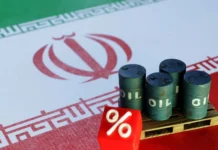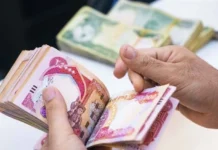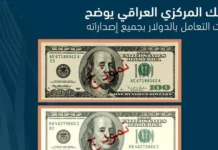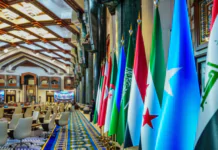Tishwash: Parliament decides to hold an extraordinary session next Monday.
Extraordinary session Monday, July 21
Representatives reading verses from the Holy Quran
First: A general topic for discussion regarding the Kut fire incident.
Second: A general topic for discussion regarding the terrorist attacks with explosive drones on infrastructure in the Kurdistan Region. link
Tishwash: Iraq’s accession to international financial institutions enhances economic development opportunities.
As part of its efforts to strengthen its financial presence on the international stage and diversify funding sources for its service and construction projects, Iraq has taken a significant step by joining two of the most prominent multilateral financial institutions: the European Bank for Reconstruction and Development and the Asian Infrastructure Investment Bank.
Although the direct repercussions of this step are still in the developmental stage, economists see it as a prelude to attracting long-term financing, bolstering development efforts in vital sectors such as energy, infrastructure, and transportation, and opening the doors to international partnerships for Iraq in the post-crisis phase.
Projects and bridges
Economic expert Dr. Majid Al-Baydani explained to Al-Sabah regarding Iraq’s accession to the Asian Development Bank: “The projects currently underway in Baghdad, such as bridges and others, have no connection to the Asian Development Bank’s projects, as their funds are allocated by the state in the project budget according to the investment portion of the budget. The Asian Development Bank has no role in implementing or establishing the aforementioned projects, as the contractor may be Chinese, the implementing company may be Chinese, or another international nationality.”
He added, “The implementation of projects by the Asian Development Bank is subject to certain conditions, including that the bank selects the implementing companies, along with their own mechanisms and engineering efforts, unlike what some might imagine. Furthermore, the bank’s projects are implemented through loans from the bank and on its own terms.”
long term
Economic expert Ahmed Makalaf believes that “there has not yet been any direct benefit from Iraq’s joining the Asian Infrastructure Investment Bank. Rather, the benefit is long-term, not immediate. The real benefit is in giving Iraq an international standing and a good reputation from an economic perspective.”
“The development road will be a gateway for the Asian Development Bank to enter Iraq with projects,” the official added in an interview with Al-Sabah. “It is likely that the country will borrow from the bank to implement projects related to the road, and will likely build cooperation through this bank in financing parts of the activity for major projects related to the development road, contributing to strengthening the economy within the international environment and building strong international relations in the future.”
Membership shares
For his part, Dr. Mazhar Mohammed Saleh, Advisor to the Prime Minister, stated that as far as the distribution of capital among the participating countries in the Asian Infrastructure Investment Bank is concerned, the bank’s total capital amounts to $100 billion, with 20% allocated as paid-in capital and the remainder as callable capital. Each country is obligated to contribute its share of the paid-in capital upon joining.
sustainable development
He added: “The Asian Infrastructure Investment Bank (AIIB) is an international institution that aims to support infrastructure projects and sustainable development in Asia and beyond. The bank, headquartered in Beijing, provides concessional loans to finance infrastructure projects for member countries. This accession is a strategic step for Iraq to advance its development projects in areas such as transportation, energy, and water.”
European Bank
Regarding the benefits of Iraq joining the European Bank, Saleh said: “There is a positive correlation between building a development strategy, which is embodied today by the government’s philosophy of launching a development initiative with comprehensive sectoral economic links, called the “Development Road” project, which is the corridor and strategic project that links the European Union countries with Asia via Iraq and the Gulf maritime corridors and vice versa
On the one hand, and the requirements for implementing the various stages of the development road through the role that Iraq’s membership in the European Bank for Reconstruction and Development occupies, on the other hand, especially in terms of the advantages of obtaining European technology and ensuring the role of companies from European Union countries in implementing the development road in all its aspects, whether in infrastructure, industrial production projects, or various logistical services.” link
************
Tishwash: Strengthening the national economy… Parliament prepares to approve the industrial investment law.
Representative Firas Al-Maslamawi, spokesman for the Reconstruction and Development bloc in parliament, confirmed on Saturday that there is a clear desire among most political blocs to pass several important laws during the final legislative session, most notably the Popular Mobilization Forces Law and the Industrial Investment Law.
Al-Maslamawi told Al-Maalouma News Agency, “The Industrial Investment Law has a significant impact on developing the industrial sector, and its passage will bring a qualitative leap forward for this vital and important sector.”
He added, “The House of Representatives is determined to make up for the missed passage of important laws during the previous legislative session, which saw a number of political blocs boycott the sessions, in addition to the regional security challenges in the region.”
He pointed out that “the majority of political blocs support the passage of laws related to reconstruction and the development of vital sectors that generate high financial revenues, in addition to the insistence of many political forces on passing the Popular Mobilization Forces law.”
Al-Maslamawi explained that “the Industrial Investment Law is one of the most prominent laws to be passed during the final legislative session, due to its pivotal role in strengthening and developing the industrial sector in Iraq.” link
************
Tishwash: Al-Sudani: We plan to open Baghdad to a larger network of internal and provincial connections via two ring roads.
Prime Minister Mohammed Shia Al-Sudani confirmed, on Saturday, that the government plans to open Baghdad to a larger network of internal connections and with the governorates via the fourth and fifth circular roads.
His office said in a statement received by (IQ), “Prime Minister Mohammed Shia Al-Sudani received, on Saturday, the sheikhs and dignitaries of the Kadhimiya, Al-Shu’la, Al-Hurriyah, Al-Tobji, Al-Atifiyah and Al-Adl areas, during which he listened to an explanation from the sheikhs and dignitaries about the status of services in their areas, their proposals for addressing them, and the most prominent problems and requirements.
” Al-Sudani stressed that “such meetings are an opportunity to learn about the concerns of the citizen and clarify what the services government is working on.” He praised the role of the authentic Iraqi tribes, which are relied upon as a safety valve for Iraq, and their awareness and responsibility in supporting the people of the country who have risen to the occasion in the legislative and executive institutions.” He pointed out “what the capital, Baghdad, has suffered from in terms of a lack of and delays in services, in addition to terrorism, which has been defeated irrevocably, despite the increase in its population to 9.5 million people.”
He explained, “The government has drawn up three tracks for services. The first is through the rapid delivery of services, through the Service and Engineering Effort Team. The second includes resuming work on stalled projects, especially hospitals, roads, bridges, water and sewage, and school buildings. The third track includes implementing new projects in Baghdad and the governorates, including easing traffic congestion.”
He continued, “We plan to open Baghdad to a larger network of internal connections and with the governorates, via the fourth and fifth circular roads, which are connected without dividing borders from Diyala, Kut, Salah al-Din, and Abu Ghraib. The districts and areas surrounding Baghdad (Sabaa al-Bour, al-Nahrawan, al-Wahda neighborhood, and al-Rashid) have been included in all infrastructure projects.”
He pointed out, “Without service projects, it will not be possible to move to building new cities and bringing about development. We have contracted with real estate developers and companies to build integrated cities, to ensure proper construction and the provision of services.”
He continued, saying: “We have started in some areas with rapid rehabilitation and the addition of basic services, including Kadhimiya due to its special status in receiving millions of visitors annually,” stressing that “the rehabilitation of the site (formerly the Fifth Division) in Kadhimiya will witness a qualitative shift for the city, and a new bridge will be added towards Al-Krayat to relieve congestion and pressure.”
He stressed, “Stability must be maintained in order for development and reconstruction to continue, and there is a heavy price we paid to achieve this goal, and we say with confidence that terrorism is no longer capable of any threat, and the security services control all areas.”
He pointed out, “Iraq is in the midst of a region inflamed with conflicts, and the criminal government of the entity has persisted in aggression and assault on the countries of the region without oversight or accountability. We maintain our principled position towards what is happening, and we work wisely and responsibly to avoid slipping into war and conflicts while we are in a construction phase, and we are consolidating our development, economic and service capabilities, to be a strong state capable of facing difficulties.”
He explained, “Our security institutions enjoy the community’s support in confronting all challenges, from the threat of drugs to preserving the state’s achievements.” link





